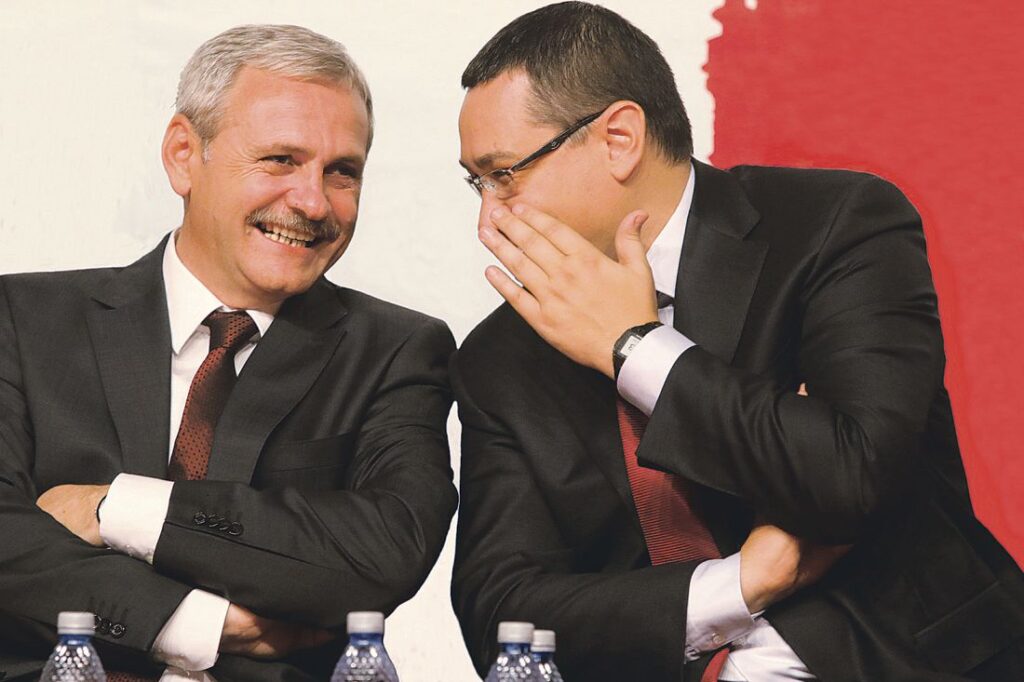The taxes went up –mainly the excise duties and the utility pole tax-, while the public investments shrank by a third. The two policies went hand in hand obstructing the economy, which was statistically translated into Romania re-entering recession. The government has abandoned some of the planned investments as the collection rate for the increased taxes was not as expected, but also because it failed to start the big infrastructure projects. The strategy was generated by the fear of getting out of hand the budgetary deficit. The result was a deficit of 0.15% of GDP after the first seven months, while the annual target is 2.2% of GDP.
The former Budget Minister Liviu Voinea had announced there will be more money to spend in the second half of the year. But were will it go? The answer came from the Prime Minister Victor Ponta: “When I hear this perfect nonsense that we shouldn’t give money to mayors. I don’t know, may be we should give money to Ukraine to buy weaponry… The money we give to the mayors is not for the mayors, it’s for those who live in towns, in cities, in villages. It’s about schools, hospitals, about roads, about everything in the life of every Romanian.”
Discretionary distribution
Prior to this statement, Ponta had said the really small budgetary deficit in the first seven months is a negative record that should be rectified and urged the ministers to start spending the available money, especially during the fall. The open season for other parties’ mayors, made possible due to the recent government decision that allows the political migration for those elected in the local administration, overlaps not only the beginning of the presidential elections campaign, but also the statements regarding the future government’s generosity regarding the public money.
The mayors’ funding machinery is very simple for the central government, but against the Law of Finances and against the transparency principles. The government decisions 103/2013 and 8/2014 have turned the Regional Development Ministry into the main decision maker in terms of funding distribution. The method was first used by the current government and it’s completely non-transparent. The amounts are now directly allocated to the mayors through Minister’s decisions which are not published in the Official Gazette.
Before the two above mentioned government decisions, the central government was financing the local administration from the reserve fund and the money was distributed according to public government decisions. Both practices are against the Law of Finances and were pointed out by both the Court of Accounts’ and Fiscal Council’s reports. But if the old version allowed the public to see were the taxpayers’ money went by looking up the Official Gazette, now the decisions are secret.
“We are currently witnessing the disappearance of any criteria or constraints regarding the Romanian local administration’s funding instruments; more than that, the funding decisions are now non-transparent and those responsible for them are hard to be identified, after years in a row when some small progresses were made towards the governance. It’s possible the bad distribution practices, most probably based on clientelism, to contaminate further the public procurement process when the mayoralties receive money and became contracting authorities”, Sorin Ionita, public administration analyst within EFOR wrote in a report regarding the way the Development Ministry centralised and classified the funding distribution for the local administration.
Money for anything
Furthermore the Development Ministry was assigned in 2014 a budget twice as big as compared to the previous year. The total expenditures increased in 2014 by 9.4 billion RON. Over half of this amount was prepared for the local authorities. “They changed the law so that the money (the amounts taken from other institutions – editor’s note) is assigned by the government to the Development Ministry and then the Minister Liviu Dragnea distributes it directly to the mayors, without any filter from the County Councils or the Prefect’s Offices. The Minister of Finances Ioana Petrescu has lately a single concern: instead of taking care of the tax collection process, she calls everyday Daniela Pescaru (the state secretary for the budget – editor’s note) to see what institutions have available money that could be redistributed to the Development Ministry”, the former Minister of Finances Gheorghe Ialomitianu told us.
The local administration is funded by own sources, but also from money transferred from the state budget as quotas from the collected revenue tax and VAT. But these subsidies are calculated as percents of the collected amounts and can’t be modified by a simple Prime Minister’s or minister’s decision. At the same time, in many cases these amounts can’t even cover the salaries. But the sums distributed by minister’s decisions don’t have to comply with any criteria, as the Court of Accounts noticed.
During the previous years, the government’s reserve fund, even if meant to cover urgent and unexpected expenses, had become in fact a parallel budget which was used by various projects, such as statues building or historical events commemoration. In its December 2013 report, the Court of Accounts rote “there were no clear and formal criteria for classifying the expenses funded by the budgetary reserve fund.”
The habit was perpetuated, in an even worse form. “The Development Minister can give money to anyone, for anything, without having to publish the decision in the Official Gazette, as such decisions are described as being of individual type (which is against the spirit of the law). The money’s destination is defined in a lavish and tempting way, including the cultural, religious and sports areas, as «expenses at local or central level which cannot be covered by the approved budget»”, noticed Sorin Ionita. As long as the local authorities don’t have access to enough financing sources and depend on the central government for surviving, such as many communes which are not able to cover their current expenses, baiting the mayors with funding in exchange of the votes they could provide will fully work.
Wasted funds
The discretionary local administration funding strategy, the ‘mercato’ season for mayors and government’s intention to start spending at local level lead to the same conclusion – the money gathered from tax raises and from cutting the funding for large infrastructure projects are at stake to be spent on local projects for electoral goals. It also happened in the past, when billions of RON were spent by mayoralties without perceptible results for the local communities or the economy.
Money for the local administration in 2014
The government budget approved by the Parliament for this year provided five billion RON more than in 2013 for the local authorities:
- 3.8 billion RON for local development programs, including projects such as urban planning, condominiums’ thermal insulation, upgrading heating systems, upgrading and expanding water and sewage networks etc.
- 1.5 billion RON for national programmes for local development, such as Romanian villages’ modernisation, urban regeneration and regional infrastructure.
Please notice that you still have important amounts to invest, to spend and that the money should be spent until October or November, as in December we will find out again that nobody can work.
Victor Ponta, Prime Minister





